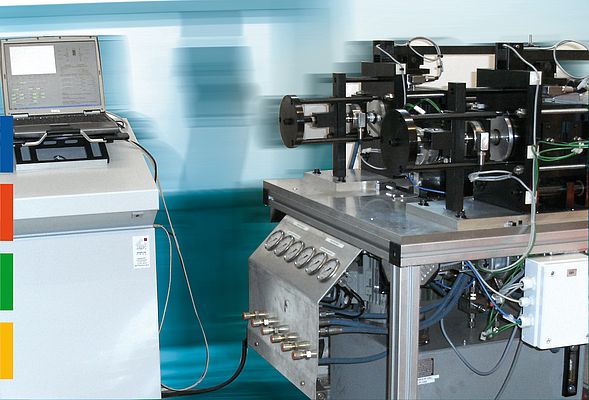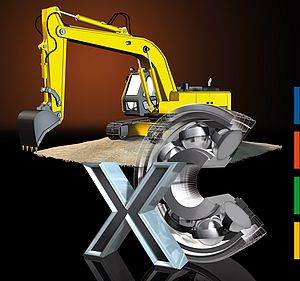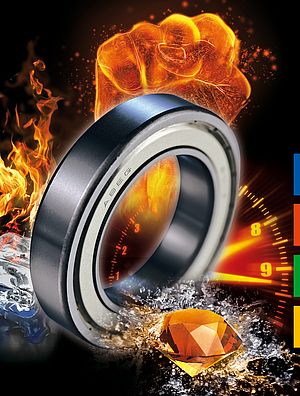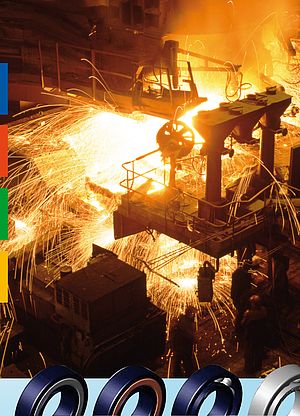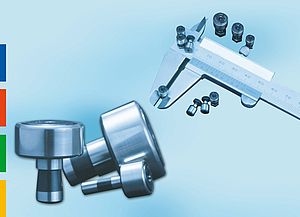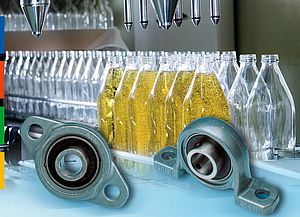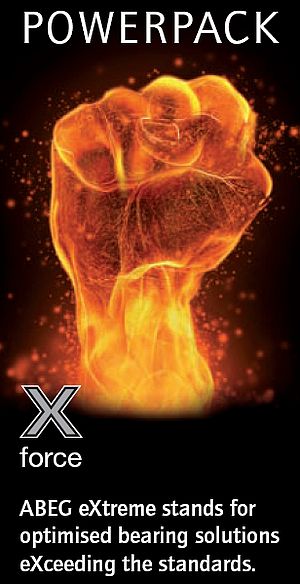A logical consequence of each theoretical bearing calculation is the question of its practical reproducibility. Where the pure trust in formulas and catalogue information is not sufficient, test series must be driven. An expensive and time-consuming task - usually associated with capacity bottlenecks in the own laboratory. Findling’s customers have now access to a flexible performance test station: Additionally to pure bearing life tests, product evaluation can also be realized by using regular operating conditions.
Bearing technology is a broad field: Hundreds of producers offer thousands rolling bearing types and designs with different performance characteristics. Simple catalogues often provides insufficient information. So the image of a product depends directly on the market experience. "Trust is good, control is better," - true to this saying, users have to answer the question of the difference between mathematical efficiency according to the catalogue and effective performance of the application. In order to reduce expensive investigations and load tests, Findling Waelzlager make available to its customers the new rolling bearings test station.
The ABEG method helps users to make a choice among four different performance classes. Practically this will be done in the design phase, supported by the software ABEG Quickfinder. The optimization potentials which have been theoretically identified can now be demonstrated in a second stage using specific parameters on the test station. "Basically, switching to a lower performance class can generate large price advantages”, knows Uwe Leimenstoll from the quality management at Findling. „Consequentially this checking gets more significance and provides as well the evidence of performance capability." Findling Waelzlager therefore relies not only on the catalogue data, but also investigates independently the performance capability of the products. For this, one specific rolling bearing test station was designed, tested and released conforming to the requirements of the benchmarking and also the bearings life calculation.
In order to make transparent the whole global bearing range and also to offer its customers the most appropriate rolling bearings, the Findling Company developed the ABEG method, which divided the products on the worldwide market into four performance classes. For each one of them a life time coefficient is defined, which determine the minimum life cycle in accordance with the applicable standard DIN ISO 281st. So for example, a highest performance class bearing (Premium) must accomplish 100 percent of the normalized lifetime, for a bearing of the third class (Eco) only a 60 percent fulfilment is necessary. Not only the theoretical values – e.g. the catalogue information – can be documented, confirmed or corrected on the basis of practical data, but also reliable statements about the product behaviour at specific operating conditions can be made. Findling’s bearing performance test station answer reliably questions, like which life time or which load rating on a product A can be guaranteed, which life expectancy has product A versus product B, and how perform the product A in the concrete application scenario, also as a function of rpm, radial load, axial load and temperature.
The Factual Test
The testing station consists on two parallel worktables, each one equipped with two samples. Consequently four bearings are tested simultaneously in each run. The test load is applied radially through a lever system. A device for the axial preload is also integrated, in order to increase the number of testable bearing types and load cases. In addition, an integrated oil lubrication system can control different temperature requirements by heating and cooling. The documented verification of the bearing state follows through surveying the increase of noise and vibration as well as the temperature variation in the outer ring area. It can therefore examine for example, how much earlier turned out product A versus product B under the same environmental influences? Which ABEG performance class guarantees the required minimal life time? Which maximum self-heating value has the bearing in my application scenario? Which consequences has the bearing heating on its noise behaviour? Which effect has the choice of lubrication on temperature and noise? Additionally to bearing tests for the customers, Findling Waelzlager makes use of the test station for continuously increasing quality as for monitoring its suppliers.


